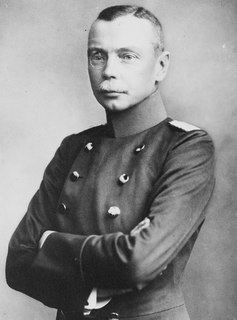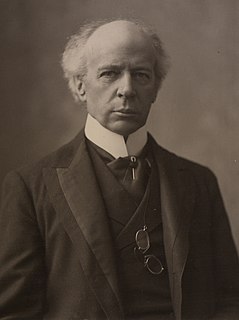A Quote by Arthur Schopenhauer
Will without intellect is the most vulgar and common thing in the world, possessed by every blockhead, who, in the gratification of his passions, shows the stuff of which he is made.
Related Quotes
All goes to show that the soul in man is not an organ, but animates and exercises all the organs; is not a function, like the power of memory, of calculation, of comparison, but uses these as hands and feet; is not a faculty, but a light, is not the intellect or the will, but the master of the intellect and the will; is the background of our being, in which they lie,--an immensity not possessed and that cannot be possessed.
Why should we desire the destruction of human passions? Take passions from human beings and what is left? The great object should be not to destroy passions, but to make them obedient to the intellect. To indulge passion to the utmost is one form of intemperance - to destroy passion is another. The reasonable gratification of passion under the domination of the intellect is true wisdom and perfect virtue.
The man who will go where his colors go, without asking, who will fight a phantom foe in the jungle and mountain range, without counting, and who will suffer and die in the midst of incredible hardship, without complaint, is still what he has always been, from Imperial Rome to sceptered Britain to democratic America. He is the stuff of which legions are made. His pride is in his colors and his regiment, his training hard and thorough and coldly realistic, to fit him for what he must face and his obedience is to his orders. He has been called United States Marine.
Sin is one thing but instinctive reaction or passion is another. These are our reactions: pride, anger, sexual indulgence, hate, greed, and so on. The corresponding sins are the gratification of these passions: when a man acts and brings into corporeal reality those works which were suggested to him by his desires. It is impossible to exist without desires arising, but not to give way to them is by no means impossible.
For that reason, let a prince have the credit of conquering and holding his state, the means will always be considered honest, and he will be praised by everybody because the vulgar are always taken by what a thing seems to be and by what comes of it; and in the world there are only the vulgar, for the few find a place there only when the many have no ground to rest on.
As man reaches out toward the twenty-first century, he will learn to be suspicious of all ideas that are not formulated so that they can be tested by observation. He will realize that the history of human thought shows that the ideas of which we are surest are the ones we most need to test. He will realize that his common sense only mirrors his training and experience. What seems natural and right to him is usually a reflection of the conditions under which he spent his first decade of life.
Nothing is so insufferable to man as to be completely at rest, without passions, without business, without diversion, without study. He then feels his nothingness, his forlornness, his insufficiency, his dependence, his weakness, his emptiness. There will immediately arise from the depth of his heart weariness, gloom, sadness, fretfulness, vexation, despair.
The essential thing is action. Action has three stages: the decision born of thought, the order or preparation for execution, and the execution itself. All three stages are governed by the will. The will is rooted in character, and for the man of action character is of more critical importance than intellect. Intellect without will is worthless, will without intellect is dangerous.
They were afraid of your authentic love, because authentic love is beyond their control.You are possessed by it. You? are not the possessor, you are the possessed. And every society wants you to be in control. The society is afraid of your wild nature, it is afraid of your naturalness, so from the very beginning it starts cutting your wings. And the most basic thing which is dangerous in you is the possibility of love, because if you are possessed by love you can go even against the whole world.
Men are admitted into heaven not because they have curbed and governed their passions or have no passions, but because they have cultivated their understandings. The treasures of heaven are not negations of passion, but realities of intellect, from which all the passions emanate uncurbed in their eternal glory.
The Internet is the hope of an integrated world without frontiers, a common world without controlling owners, a world of opportunities and equality. This is a utopia that we have been dreaming about and is a world in which each and every one of us are protagonists of a destiny that we have in our hands.
Idealism does not represent a superfluous expression of emotion, but in truth it has been, is, and will be, the premise for what we designate as human culture...Without his idealistic attitude all, even the most dazzling faculties of the intellect, would remain mere intellect just like outward appearance without inner value, and never creative force....The purest idealism is unconsciously equivalent to the deepest knowledge.
We are here a nation, composed of the most heterogeneous elements-Protestants and Catholics, English, French, German, Irish, Scotch, every one, let it be remembered, with his traditions, with his prejudices. In each of these conflicting antagonistic elements, however, there is a common spot of patriotism, and the only true policy is that which reaches that common patriotism and makes it vibrate in all toward common ends and common aspirations.






































